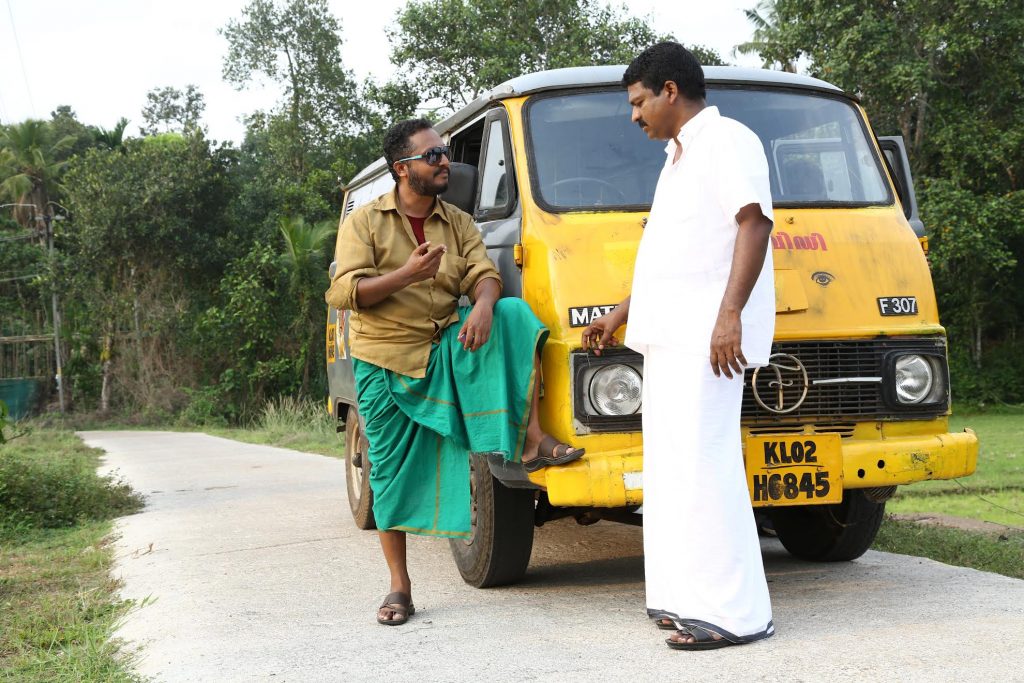“Six feet of earth makes us all equal” says an old Proverb, but in Indian society that is not for sure; for certain sections of our society, it is impossible to be equal even after death. Aradi (Six Feet) by Saji Palamel is a film about the impossibility of Dalits getting this basic right of equality even after they die.
The film begins with the death of Kunjikkoru Master, a freedom fighter, thinker, teacher and Sanskrit scholar who also happens to be born in a Dalit community in Kerala. As a social worker, freedom fighter and scholar, one would naturally think that his body will be given the respect and honours it deserves, by the public, social organisations, political parties and the government. It is not that it matters for the individual concerned, but such gestures are public acknowledgments of the society’s respect for the man and an occasion for remembering his contributions to make our society what it is today. Though Kunjikkoru Master has all the ‘necessary qualifications’, and everyone mouths praises about him all the time, his body is denied proper space and basic respect leave alone honors, only because he was a Dalit. This is despite the fact that his grandson Sunish is an active political worker of a national party who is also is the regional president of its dalit faction. And this denial of respect and due acknowledgment does not come forth in a direct and simple manner in Kerala where everyone loudly swears allegiance to secular ethos, democratic values and egalitarian ideals. This apartheid works its ways in very devious manners in a society like Kerala: openly acknowledging dalit fraternity in the public but systematically denying it when it comes to real practice and in private dealings. In the film we find the political leaders engaging in their usual double-speak about the departed soul, who they praise to the skies in public but always with an eye on power and vote bank. And we find a community that is divided within itself, unable to play smart political games or work their ways through the political structures.
The film follows the journey of Sunish, the grandson, with the dead body of his grandfather, to find a decent place to pay him last respects and to bury him. First his party’s office, then the school his grandpa taught in, then even the river bank where bodies are usually cremated, are denied to him. In all these places, he is offered only lame excuses. In the end, the only place he manages to get is a Pentecostal church on the condition that they will offer their prayers.
The film is a hard hitting portrayal of the ways in which the Dalit community in Kerala has been robbed of their own past, resources, tradition, skills and self worth, in spite of them paying the price for every political transformation, social change and economic growth in our society – whether it be freedom struggle, development or globalisation. For instance, Sunish is not able to bury the dead at home because most part of his house has been acquired for ‘development’ in the form of a road project; the party he works for needs him only as a token presence to cater to the caste vote bank he represents, his own family members have got converted to other religions for the sake of livelihood, basic necessities of life and also social respect. Realising that he has no friends, relatives or godfathers who matter in society to help him, he is pushed to the end of his tether. Enraged and heart-broken, Sunish digs a pit in their kitchen to bury the body.
Saji Palamel’s road movie is a journey through the mindscape of Kerala that rips apart its secular, progressive mask, revealing the caste ghost that is very much alive behind, inside, and deep within.
Aradi will premiere at the International Film Festival of Kerala, 2016 in the Malayalam Cinema Today section.
Malayalam, Drama, Color


